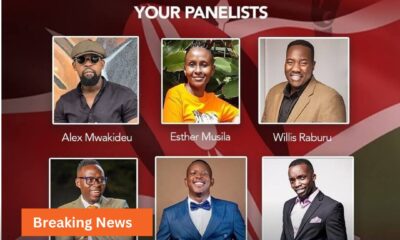Among the prosecution’s key witnesses are officials appointed by the Trump administration itself, including Gordon D. Sondland, the ambassador to the European Union; Kurt D. Volker, the former special envoy to Ukraine; Fiona Hill, the president’s former Europe and Russia adviser, and her successor, Tim Morrison; Christopher A. Wray, the F.B.I. director; Mick Mulvaney, the acting White House chief of staff; William B. Taylor Jr., the former top diplomat in Ukraine; and Thomas P. Bossert, the former White House homeland security adviser.
Others brought electronically into the chamber over the last three days include career public servants like Marie L. Yovanovitch, the former ambassador to Ukraine; Lt. Col. Alexander S. Vindman, a National Security Council staff member; and State Department officials like George Kent and David Holmes.
“Why did President Trump’s own officials — not so-called Never Trumpers, but public servants — report this in real time?” Mr. Schiff asked, referring to the mixing of politics with Ukraine policy. “Because they knew it was wrong.”
Indeed, the managers used Mr. Trump’s own appointees to rebut his assertion that he was right to push Ukraine to investigate its own supposed interference in the 2016 presidential election, a conspiracy theory that American intelligence agencies have called a Russian disinformation operation. The managers showed clips of Mr. Wray, Mr. Bossert and Dr. Hill all debunking the theory.
But the most compelling voice in the chamber this week has been that of the president himself. In his three years in office, Washington has learned that when it wants to understand what Mr. Trump is doing or thinking, he will most likely spell it out in bracingly candid terms in front of a microphone or on Twitter — and not always follow the official party line offered by his aides.
That uninhibited style appeals to supporters who love that he does not hew to standard talking points, but it can make him a frustrating client for lawyers who would prefer he be more circumspect at the very least. Either way, it makes his statements more important in judging him. Which is presumably one reason his legal team has resisted Mr. Trump’s suggestions that perhaps he should attend the trial and testify himself.

 General News1 week ago
General News1 week ago
 Politics1 week ago
Politics1 week ago
 Business News7 days ago
Business News7 days ago
 General News6 days ago
General News6 days ago
 Business News10 hours ago
Business News10 hours ago



